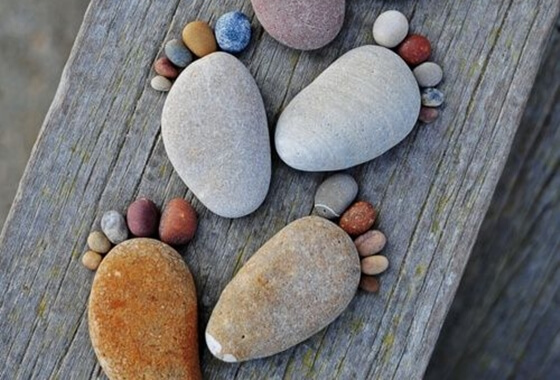Knowing When You Should End a Friendship


Written and verified by the psychologist Gema Sánchez Cuevas
Sometimes, friendships come to an end. Indeed, some people end up disappointing you. Often, the wound that the loss of them leaves behind makes you feel hurt and angry. Nevertheless, over time, you learn from your experiences and begin to be far more selective in your choice of friends. However, it’s still difficult to know when you should end a friendship.
Curious as it may seem, when it comes to friendship, the same thing happens as in love. You tend to believe that you have the friends you think you deserve. Your friendships are also connected to your self-esteem, your ability to impose filters, and understand that relationships, whatever they may be, are dynamic entities that change and mutate, just like your own identity.
“A friend is a gift you give yourself.”
-Robert Louis Stevenson-
Some people claim that “losing a love hurts, but losing a friendship kills”. In fact, it’s as if this bond, based on complicity, camaraderie, and high emotional ‘nutrition’ sustains you in a way that’s equal to, or more significant than any other kind of relationship.
There aren’t so many studies on friendship as romantic relationships. However, the few studies that do exist in the field of social psychology claim that losing a friendship hurts as much as losing a partner.
One such study was published in the journal, Epidemiology and Community Health. It pointed out that the sensation of loss is experienced equally by both men and women. Indeed, a friend is, for most of us, an indispensable part of our daily lives, to the point that they’re essential for our physical and emotional well-being.

When you want to end a friendship and don’t know how
Blanca is 40 years old and has decided to end a friendship that’s lasted for years. In fact, it’s lasted all her life. She and Elisa grew up together because their mothers were already friends. The bossy girl with brown eyes and long legs soon became both her friend and adversary in equal measure.
When they were children, Elisa forced Bianca to get involved in activities that she didn’t want to do. She broke her arm when she tried to climb the school wall with her because Elisa told her to do so so. She shared the secret of her first love with her. However, she noticed that Elisa ‘stole’ all the boys she was interested in. As a matter of fact, through all these years Blanca has been maintaining a codependent friendship with a manipulative person. That’s because she doesn’t know how to leave the friendship or how to tell Elisa to stop taking advantage of her.
Maybe you identify with this story? Either way, the question remains as to why it’s so difficult for us to end a friendship that brings us more problems than advantages. Let’s take a look at some explanations.
Reasons why you’re reluctant to say “enough” to a friend
The first reason is simple. You think you owe them loyalty. Maybe, because you’ve shared so many experiences and secrets together. However, there’s one thing you must be clear about.
- In any relationship, whether with a partner or a friend, you need balance and reciprocity. Indeed, loyalty is meaningless if there’s no respect.
The second aspect concerns the idea that you can change them. You tell yourself that you must be patient, that what happened today won’t happen again if you give them a warning and tell them that they’re upsetting or hurting you.
Another undoubtedly worrying aspect is thinking that you have the friends you deserve. You tell yourself that we all ‘fail’ at some time or another, we all have our weak points, and that, sometimes, it’s normal to not behave very well and inadvertently hurt others.
Furthermore, occasionally, the fear of loneliness makes you continue with highly harmful, exhausting, and toxic friendships. This isn’t appropriate. In fact, you should always remember that good friendships are those that make you better every day, They don’t try and change you but empower you as a human being. After all, you know, deep down, that you deserve well-being, balance, and happiness.
Disappointment in a friendship means making a decision
Gretchen Rubin is the author of an interesting book entitled The Happiness Project. In this book, she explains that many of us go through our daily lives with the feeling of drifting. This concept is interesting because, as the author herself describes, drifting means making the decision to ‘not decide’ about what we want and don’t want in our own lives.
“Wishing to be friends is quick work, but friendship is a slow ripening fruit.”
-Aristotle-
Not making or postponing decisions means you’re putting up with a poor substitute for happiness with insignificant relational ties. In fact, with people who disappoint you over and over again yet who you still keep by your side. You permit it out of loyalty or the fear of being alone, as we mentioned earlier.
You must be clear that those years of your childhood and adolescence where you didn’t impose any limits are behind you. Those days when you let anyone in because you were eager for experiences, emotions, and news are gone. Indeed, maturity implies, above all, being selective and seeking quality in all of your relationships.

Disappointments, if provoked deliberately and repeatedly, give you an obvious clue about the human quality of that person. You must act and make a decision, even if it hurts, even if you’ve had that friend for half of your life or more. Because if it hurts, it’s not friendship.
Learn to be selective, to value your real friendships, the most magical and exciting ones. Those that teach you, that improve you, and that you also contribute to. In fact, those that help you to be the best version of you.
Sometimes, friendships come to an end. Indeed, some people end up disappointing you. Often, the wound that the loss of them leaves behind makes you feel hurt and angry. Nevertheless, over time, you learn from your experiences and begin to be far more selective in your choice of friends. However, it’s still difficult to know when you should end a friendship.
Curious as it may seem, when it comes to friendship, the same thing happens as in love. You tend to believe that you have the friends you think you deserve. Your friendships are also connected to your self-esteem, your ability to impose filters, and understand that relationships, whatever they may be, are dynamic entities that change and mutate, just like your own identity.
“A friend is a gift you give yourself.”
-Robert Louis Stevenson-
Some people claim that “losing a love hurts, but losing a friendship kills”. In fact, it’s as if this bond, based on complicity, camaraderie, and high emotional ‘nutrition’ sustains you in a way that’s equal to, or more significant than any other kind of relationship.
There aren’t so many studies on friendship as romantic relationships. However, the few studies that do exist in the field of social psychology claim that losing a friendship hurts as much as losing a partner.
One such study was published in the journal, Epidemiology and Community Health. It pointed out that the sensation of loss is experienced equally by both men and women. Indeed, a friend is, for most of us, an indispensable part of our daily lives, to the point that they’re essential for our physical and emotional well-being.

When you want to end a friendship and don’t know how
Blanca is 40 years old and has decided to end a friendship that’s lasted for years. In fact, it’s lasted all her life. She and Elisa grew up together because their mothers were already friends. The bossy girl with brown eyes and long legs soon became both her friend and adversary in equal measure.
When they were children, Elisa forced Bianca to get involved in activities that she didn’t want to do. She broke her arm when she tried to climb the school wall with her because Elisa told her to do so so. She shared the secret of her first love with her. However, she noticed that Elisa ‘stole’ all the boys she was interested in. As a matter of fact, through all these years Blanca has been maintaining a codependent friendship with a manipulative person. That’s because she doesn’t know how to leave the friendship or how to tell Elisa to stop taking advantage of her.
Maybe you identify with this story? Either way, the question remains as to why it’s so difficult for us to end a friendship that brings us more problems than advantages. Let’s take a look at some explanations.
Reasons why you’re reluctant to say “enough” to a friend
The first reason is simple. You think you owe them loyalty. Maybe, because you’ve shared so many experiences and secrets together. However, there’s one thing you must be clear about.
- In any relationship, whether with a partner or a friend, you need balance and reciprocity. Indeed, loyalty is meaningless if there’s no respect.
The second aspect concerns the idea that you can change them. You tell yourself that you must be patient, that what happened today won’t happen again if you give them a warning and tell them that they’re upsetting or hurting you.
Another undoubtedly worrying aspect is thinking that you have the friends you deserve. You tell yourself that we all ‘fail’ at some time or another, we all have our weak points, and that, sometimes, it’s normal to not behave very well and inadvertently hurt others.
Furthermore, occasionally, the fear of loneliness makes you continue with highly harmful, exhausting, and toxic friendships. This isn’t appropriate. In fact, you should always remember that good friendships are those that make you better every day, They don’t try and change you but empower you as a human being. After all, you know, deep down, that you deserve well-being, balance, and happiness.
Disappointment in a friendship means making a decision
Gretchen Rubin is the author of an interesting book entitled The Happiness Project. In this book, she explains that many of us go through our daily lives with the feeling of drifting. This concept is interesting because, as the author herself describes, drifting means making the decision to ‘not decide’ about what we want and don’t want in our own lives.
“Wishing to be friends is quick work, but friendship is a slow ripening fruit.”
-Aristotle-
Not making or postponing decisions means you’re putting up with a poor substitute for happiness with insignificant relational ties. In fact, with people who disappoint you over and over again yet who you still keep by your side. You permit it out of loyalty or the fear of being alone, as we mentioned earlier.
You must be clear that those years of your childhood and adolescence where you didn’t impose any limits are behind you. Those days when you let anyone in because you were eager for experiences, emotions, and news are gone. Indeed, maturity implies, above all, being selective and seeking quality in all of your relationships.

Disappointments, if provoked deliberately and repeatedly, give you an obvious clue about the human quality of that person. You must act and make a decision, even if it hurts, even if you’ve had that friend for half of your life or more. Because if it hurts, it’s not friendship.
Learn to be selective, to value your real friendships, the most magical and exciting ones. Those that teach you, that improve you, and that you also contribute to. In fact, those that help you to be the best version of you.
This text is provided for informational purposes only and does not replace consultation with a professional. If in doubt, consult your specialist.







